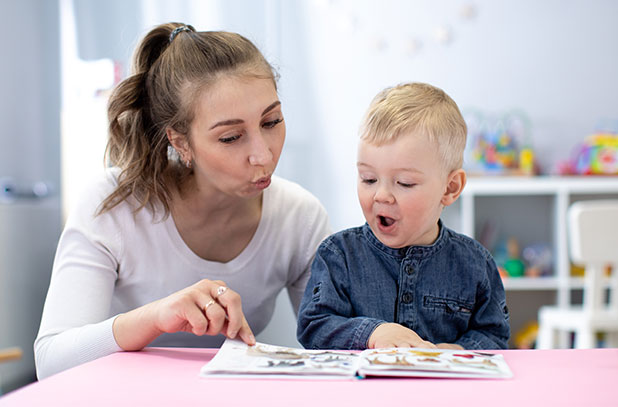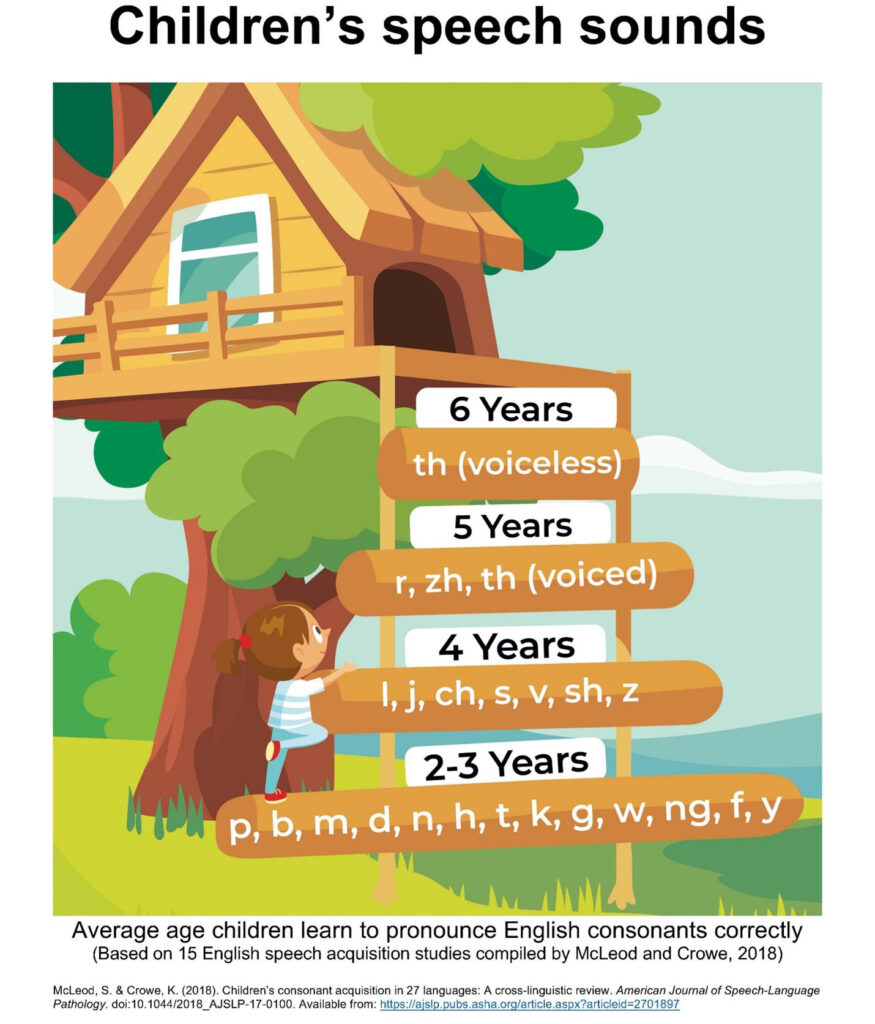
Speech Development
The sound pattern of language that we call speech or articulation is made up of combinations of sounds that form words. Speech development is a gradual process. It begins in infancy and continues through a child’s seventh or eighth year. Children develop speech abilities at different rates and ages.
Milestones of Speech Development
-
Newborn–3 months
First Sounds
Newborns are limited to crying, which signals hunger or discomfort, and to other non-cry sounds such as burps, coughs and sneezes.
Between two and three months of age your baby begins to laugh. -
4–6 months
Vocal Play
During the period of 4 – 6 months, babies can produce sounds that are more like speech. They begin to put sounds together, making syllables out of vowel and consonant-like sounds. They also make non-speech sounds like raspberries, squealing, yelling and growling. This experimentation with sound production is called vocal play.
-
6–11 months
Babbling
Between 6 – 11 months of age, infants begin to babble. In babbling, a syllable is repeated two or more times in sequence, like ba-ba. Babbling is a way for your infant to practice the oral motor speech skills needed during actual speech.
-
12–18 months
First Words
Between 12-18 months, babies begin to produce strings of sounds made up of different syllable combinations such as ba-da-na. These sequences are produced with adult-like speech patterns. Your baby seems to be really talking, asking questions, making statements or demanding action. However, when you listen closely to these combinations, you will find they are mostly jargon. Sometime around the babies first birthday, the child begins to produce some true words. However, babies are very limited in the consonants and vowels they use in these first words.
-
18–36 months
Rapid Speech Development
Between 18 – 36 months children develop speech rapidly. They use a greater variety of sounds and sound combinations. When they encounter a word that is difficult to pronounce they usually simplify the pronunciation. A child might:
- Leave off the final consonant of a word. Dog would be pronounced da.
- Simplify the production of a consonant blend (two or more consonants in a sequence), so that plane would become pane.
- Substitute one sound that is easier to make than another which is more difficult to make. For example, ring becomes wing.
- one of the syllables in a word. For example water might become wa-wa.
- Drop one of the syllables in a word so that telephone becomes tephone.

